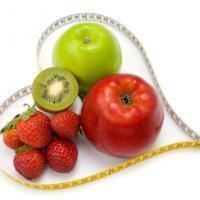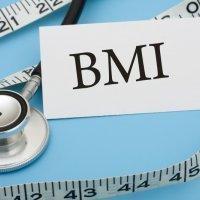Top 10 Vegetables High in Protein
Don't believe if someone says you that eating meat is obligatory to consume enough protein! This is a common misconception, which is easily demolished by the fact, that all products (except for highly refined ones) contain protein in different amounts.
Let's talk about the best plant sources of protein. One portion of some of these plant products (for example, beans and nuts) may serve up even a bigger amount of protein, than the same amount of meat! Vegetables aren't usually renowned for their protein level, but some of them pack an excellent protein punch, combined with essential nutrients and plant fiber. Below you will find a list of the 10 most protein-rich veggies.
1. Green peas
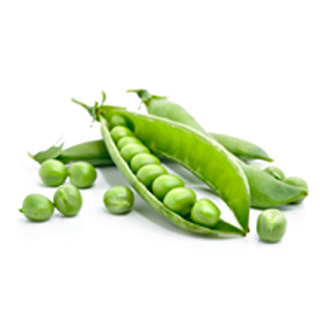
| Peas, Green | |
| 100 g | 1 cup (145 g) |
| Protein: 5.4 g (11% DV) |
Protein: 7.9 g (16% DV) |
Green peas – the nutritional powerhouse, which will add a bright accent to your protein intake. A single portion (cup) of cooked peas provides eight grams of protein. Peas are versatile, easy to cook and to use as a snack. The protein they contain is highly digestible and has a high nutritional value. Moreover, peas hold a large amount of fiber, which facilitates digestion and prevents inflammations of the digestive system. Peas contain vitamins A, C, H, vitamins of group B and around 26 minerals. This product is highly beneficial for people with kidney problems, because it fights swelling and stone formation. Regular eating of fresh green peas helps to decrease the risk of heart attack, hypertension and oncological diseases.
2. Spinach
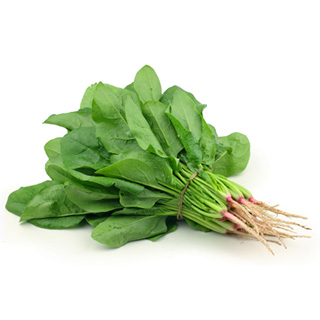
| Spinach | |
| 100 g | 1 bunch (340 g) |
| Protein: 2.9 g (6% DV) |
Protein: 9.7 g (19% DV) |
Spinach, the popular food of Popeye will definitely make you a superhero! A single cup of cooked spinach comprises five grams of protein. Apart from protein, spinach also contains carbohydrates and even fats, organic, saturated and non-saturated fatty acids, fiber, starch, sugars; vitamins A, E, C, H, K, PP, a lot of vitamins of group B, beta-carotene, calcium, sodium, magnesium, potassium, phosphorus, iron, copper, manganese and selenium. Impressive, isn’t it? Most of the protein is located in the leaves of spinach, the bigger amount can be found only in runner beans and green peas. Such important vitamins as A and C in spinach are resistant to thermal conditioning. Spinach curbs hunger, provides the body with nourishment, removes toxins. Only carrots contain more carotene than spinach, and due to the high iron level, spinach helps hemoglobin to become more active and improve oxygen supply to the cells. It boosts metabolism and helps the body to produce energy.
3. Legumes

| Chickpeas (garbanzo Beans, Bengal Gram), Mature Seeds | |
| 100 g | 1 cup |
| Protein: 19.3 g (39% DV) |
Protein: 38.6 g (77% DV) |
| Soybeans, Mature Seeds | |
| Protein: 36.5 g (73% DV) |
Protein: 67.9 g (136% DV) |
| Winged Beans, Mature Seeds | |
| Protein: 29.7 g (59% DV) |
Protein: 54 g (108% DV) |
Legumes – black, adzuki, lima, fava, kidney, great northern and soy beans, – basically all the members of the legume family of vegetables are exceptionally rich in protein. Half a cup of prepared black beans contains 7 grams of protein, which is a rather significant value. And the champion in this league is soy – half a cup of soy beans has roughly 15 grams of protein. Apart from protein content, legumes have coarse plant fiber. It’s needed for normal performance of digestive system and for sustaining the feeling of fullness. Legumes contain vitamin A and vitamins of group B, iron, calcium, folic acid.
4. Kale

| Kale | |
| 100 g | 1 cup, chopped (67 g) |
| Protein: 4.3 g (9% DV) |
Protein: 2.9 g (6% DV) |
Kale is a healthy vegetable full of important nutrients – vitamins A, C and K, minerals, and, of course, protein. A cup of kale has only 40 calories, but provides you with roughly 2 grams of quality plant protein. Apart from all the other vitamins, kale contains vitamins B1, B2, PP (although in small quantities), folic and pantothenic acids and many minerals. Almost all the vitamins the human being needs are accumulated in kale. This vegetable is a source of mineral substances, mostly potassium, calcium, phosphorus and sulfur.
5. Potato
 Other types of Potato High in Protein (100g):
Other types of Potato High in Protein (100g):
| Potatoes, Red, Flesh And Skin | |
| 100 g | 1 potato medium (2-1/4 inch to 3-1/4 inch dia) (213 g) |
| Protein: 1.9 g (4% DV) |
Protein: 4 g (8% DV) |
Potato is often overlooked by lovers of healthy nutrition, because many think it contributes to weight gain. But, as usual, moderate and smart consumption can prevent additional pounds on your hips! Boil or bake instead of frying and don’t overeat in order to get all the benefits of potato without experiencing its drawbacks. One baked potato of medium size provides you with about 3g of protein. Combine it with plain lean Greek yogurt to double your protein gain. Baked potatoes are a good source of vitamin C (which boosts your immune system) and potassium, which helps to maintain healthy blood pressure.
6. Corn
 Other types of Corn High in Protein (100g):
Other types of Corn High in Protein (100g):
| Corn, White | |
| 100 g | 1 ear, medium (6-3/4 inch to 7-1/2 inch long) (90 g) |
| Protein: 9.4 g (19% DV) |
Protein: 8.5 g (17% DV) |
Corn is another protein powerhouse in the vegetable world. A single cup of cooked yellow corn has about 5g of plant protein. Guess the Mayans were right to eat corn all the time! Moreover, corn also contains more antioxidants than any other vegetable. Scientific studies have confirmed that corn has a high nutritional and biological value, that’s why it is easily digested by the human body. By including this product into your daily menu, you can activate metabolism considerably. As a result, you will feel better and your immune system will work like clockwork. Despite the high calorific value, corn is beneficial in case of obesity, because it satiates the body quickly and decreases appetite.
7. Broccoli
| Broccoli Raab | |
| 100 g | 1 stalk (19 g) |
| Protein: 3.2 g (6% DV) |
Protein: 0.6 g (1% DV) |
You'll gain 4 extra grams of protein for every cup of broccoli you eat. It contains great doses of carotene, ascorbic and folic acids, vitamins of group B, PP, E, magnesium, phosphorus, potassium and sodium. According to the studies, the benefits of broccoli are priceless in prevention of colon, breast and ovary cancer. To get the minimal beneficial effect, you need to eat at least half a cup of this veggie. Broccoli also contains Omega 3 fatty acids, which body needs for many reasons, especially for alignment of cardiac system. It is a valuable source of kaempferol, the bioactive compound, which strengthens the vessels, helps to withdraw toxins and has anti-allergic and toning effect.
8. Lentils
 Other types of Lentils High in Protein (100g):
Other types of Lentils High in Protein (100g):
| Lentils | |
| 100 g | 1 cup (192 g) |
| Protein: 25.8 g (52% DV) |
Protein: 49.5 g (99% DV) |
Another type of vegetable in the same group as beans, lentils hold roughly 25 grams of protein per half a cup. When vegetarians say, that lentils can replace meat, it’s credible. It contains up to 60% of protein (that’s more digestible than meat protein) and more iron than all the other vegetables. One portion of cooked lentils contains up to 90% of daily folic acid need, that's why it is useful for pregnant women. Fiber helps digestion and prevents colon cancer. The risks of breast cancer are also decreased, because lentils contain isoflavones – substances, which belong to the group of phytoestrogens and possess antioxidative qualities.
9. Edamame
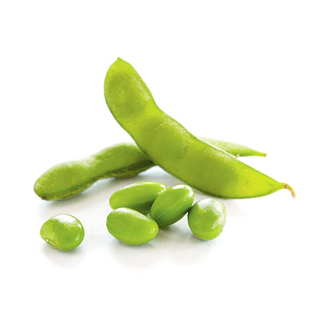
| Edamame, Frozen, Prepared | |
| 100 g | 1 cup (155 g) |
| Protein: 10.9 g (22% DV) |
Protein: 16.9 g (34% DV) |
Edamame are young, larger soybeans that are harvested early while the beans are still green. One-half cup serving of edamame can provide between 6 and 10 grams of protein, depending on the brand. They taste sweeter than typical soybeans and are sold fresh or frozen in the pod or shelled. Edamame belongs to the high-quality and low-calorie product, that’s why this vegetable has gained popularity as a dietary product. Edamame are also rich in iron, calcium, zinc, vitamins of group A and B.
10. Artichoke
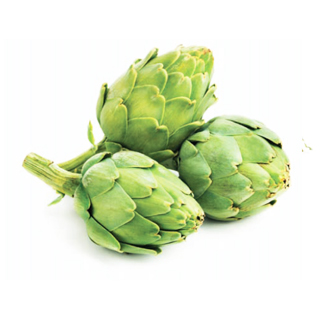
| Artichokes, (globe Or French) | |
| 100 g | 1 artichoke, medium (128 g) |
| Protein: 3.3 g (7% DV) |
Protein: 4.2 g (8% DV) |
One medium artichoke contains 4 grams of protein and only 60 calories while providing 7 grams fiber and no fat. They are also good sources of iron, potassium, vitamin C and magnesium. Artichoke is believed to induce destruction of malignant cells. It inhibits the development of many different forms of cancer, including leucosis, prostate and breast cancer. Moreover, this veggie is a unique source of fiber – one artichoke contains even more fiber than one cup of prunes! This product is very beneficial for liver. Due to the silimarin it contains, it increases the regeneration of tissues. This plant also stimulates the digestive system and has diuretic ability. Adding artichoke leaves into dishes helps to regulate the cholesterol level.
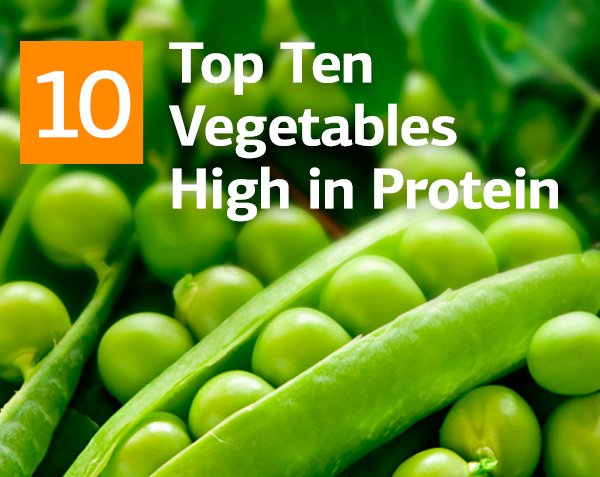
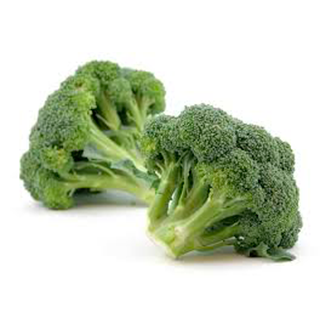 Other types of Broccoli High in Protein (100g):
Other types of Broccoli High in Protein (100g):



